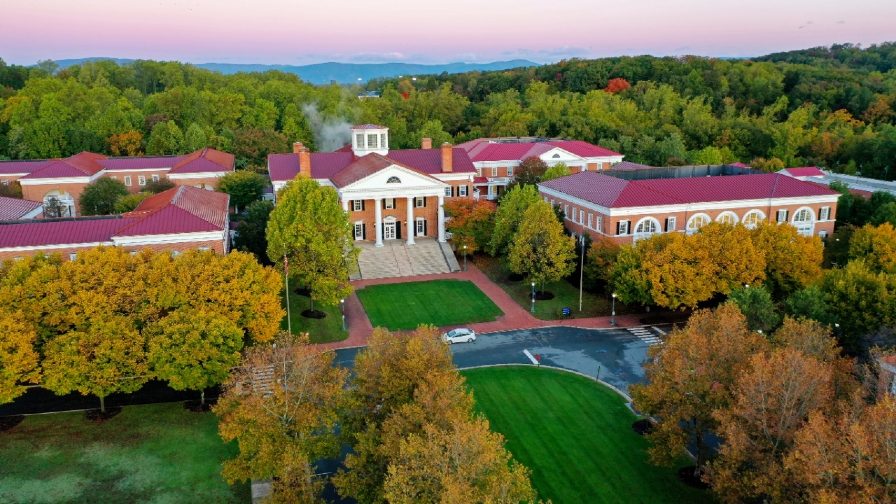
WTO Chief Economist: Trade Landscape ‘Reorganized’ but Resilient
By Dave Hendrick
Although global trade and related economic growth have been on a rollercoaster ride in recent years, upended by factors including the dramatic reorientation of global cooperation under the Trump Administration and, more recently, the coronavirus pandemic, the global economy entered spring 2021 showing surprising resilience.
Speaking in Professor Peter Debaere’s “Managing International Trade and Investment” class at the University of Virginia Darden School of Business, World Trade Organization Chief Economist Robert Koopman said the landscape remained “complicated” in the world of international trade, even if the factors behind the complications are now largely driven by the global disruption of the coronavirus rather than the often unpredictably unilateral tendencies of the previous U.S. presidential administration.
COVID-19 continues to ripple through the global economy, Koopman said, but its impact has not been as dramatic as feared. What at one point was predicted to be a global decline in GDP of as high as seven percent in 2020 instead ended the year down 3.3 percent, with an outlook for a six percent increase in 2021.
Chiefly responsible for the relatively rapid turnaround? The massive intervention of governments around the globe, including $16 trillion in fiscal policy support and extensive liquidity provisions equivalent to another $10 trillion by central banks.
Similarly, what was once feared to be a massive decline in global trade instead ended the year down a more modest 5.3 percent in 2020. When formulating initial estimates, Koopman said the WTO expected financial relief and support similar to that during the financial crisis of 2008-09.
“Most of COVID-19 related measures taken since the outbreak of the pandemic were trade facilitating,” said Koopman.
Moreover, the increased flow of medical supply aided trade figures in the third and fourth quarter of 2020.
The WTO expects 8 percent growth in global trade volume in 2021, with upside or downside risk related primarily to production and global distribution of a coronavirus vaccine.
Koopman said the trading landscape would look different in a post-COVID era, and described the new landscape as “reorganized,” or a “reglobalization,” rather than a deglobalization. So far, Koopman said the WTO had seen no real evidence of reshoring, for instance.
The economist predicted more diversification of supply chain sourcing and more flexible production processes as multinational firms seek to mitigate future disruptive events. In addition to taking seriously the threat of the next health crisis, firms are guarding against future climate-related crises.
The global trade bedrock principles of specialization and comparative advantage still hold, Koopman said, but firms are increasingly considering the trade-offs of risks versus efficiencies.
Firms may increasingly move from “just in time” inventory processes to holding more critical supplies on hand, for instance, and increasingly move toward automated processes where possible. Governments and households, too, are likely to make moves to stockpile key goods to ensure they aren’t caught flat-footed by a future crisis.
Despite the pandemic and protectionist moves by key players, Koopman said the WTO had come out of recent crisis years with agreements essentially intact, and gave the organization “a passing grade,” despite the disruption.
Debaere largely agreed, saying that while important questions remained about where the WTO can or will go next, “the system has held to some extent.”
Indeed, despite competing goals from global powers, Koopman said the WTO expected trade costs to continue to fall in the years ahead.
“When we look at changes in trade costs, we don’t see rising trade costs,” said Koopman. “Maybe the rate of decline has slowed but overall not clear it here has been a massive increase in trade costs due to protectionism.”
The challenge for the WTO in the modern era involves weaving “a multipolar world” dominated by the U.S., the European Union and China together to form agreements despite radically different approaches and ideas, Koopman said.
The University of Virginia Darden School of Business prepares responsible global leaders through unparalleled transformational learning experiences. Darden’s graduate degree programs (MBA, MSBA and Ph.D.) and Executive Education & Lifelong Learning programs offered by the Darden School Foundation set the stage for a lifetime of career advancement and impact. Darden’s top-ranked faculty, renowned for teaching excellence, inspires and shapes modern business leadership worldwide through research, thought leadership and business publishing. Darden has Grounds in Charlottesville, Virginia, and the Washington, D.C., area and a global community that includes 18,000 alumni in 90 countries. Darden was established in 1955 at the University of Virginia, a top public university founded by Thomas Jefferson in 1819 in Charlottesville, Virginia.
Press Contact
Molly Mitchell
Associate Director of Content Marketing and Social Media
Darden School of Business
University of Virginia
MitchellM@darden.virginia.edu





